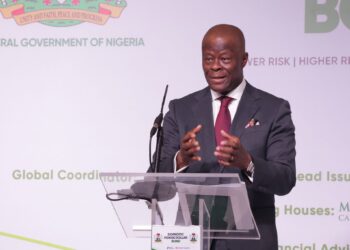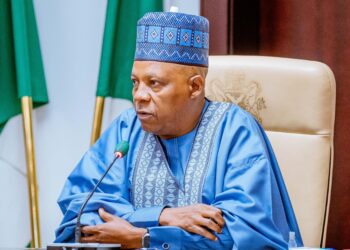The Academic Staff Union of Universities (ASUU) has embarked on a 4-week nationwide strike aimed at pressing home its demands from the Federal Government.
This was announced by the National President of the union, Professor Emmanuel Osodeke on Monday at a press conference after a two-day meeting of its NEC members held at UNILAG. He said the strike which will be comprehensive and total would last for an initial period of four weeks.
Recall the Union declared a lecture-free day on February 7, aimed at sensitizing the university communities and the public of the Federal Government’s failure to honour an agreement they both entered in December 2020.
What ASUU President is saying about the strike
Mr Osodeke said the Federal Government is yet to meet their demands, hence, the strike.
He said, “NEC resolved to embark on the four-week roll-over total and comprehensive strike as government has failed to implement the Memorandum of Action it signed with the ASUU in December 2020.”
“We invite all lovers of education to join our struggle for a greater Nigeria. Nigerian politicians keep proliferating educational institutions without prioritising education.
“ASUU will not relent in its historic responsibility of advocating for an improved university system.
“This is because it holds the key to our collective prosperity and better future for our children and our children’s children; so, let us work together to fix it,
“We don’t like to see our students at home. We don’t want our academic calendars disrupted but our demands are not met.”
He urged the Federal Government to call the Vice-Chancellor of Obafemi Awolowo University, Ile-Ife, for his failure to pay the earned academic allowance of its members in the institution.
“We have an agreed template with FG but the VC refused to pay. Failure to pay using that template is a misappropriation. He should be cautioned,” Osodeke said.
What you should know
- The strike declared by ASUU takes effect from Monday 14 February 2022.
- Some of the demands of ASUU include funding for the revitalisation of public universities, earned academic allowance, poor funding of state universities and promotion arrears.
- Others are the sustainability of the university autonomy, which it said the introduction of IPPIS violates; immediate deployment of UTAS to replace IPPIS; renegotiation of the 2009 ASUU-FGN agreement; release of the reports of visitation panels to federal universities and distortions in salary payment challenges.
- ASUU is not in support of the IPPIS for lecturers which led to the development of its own called UTAS for the government to adopt.















.gif)





